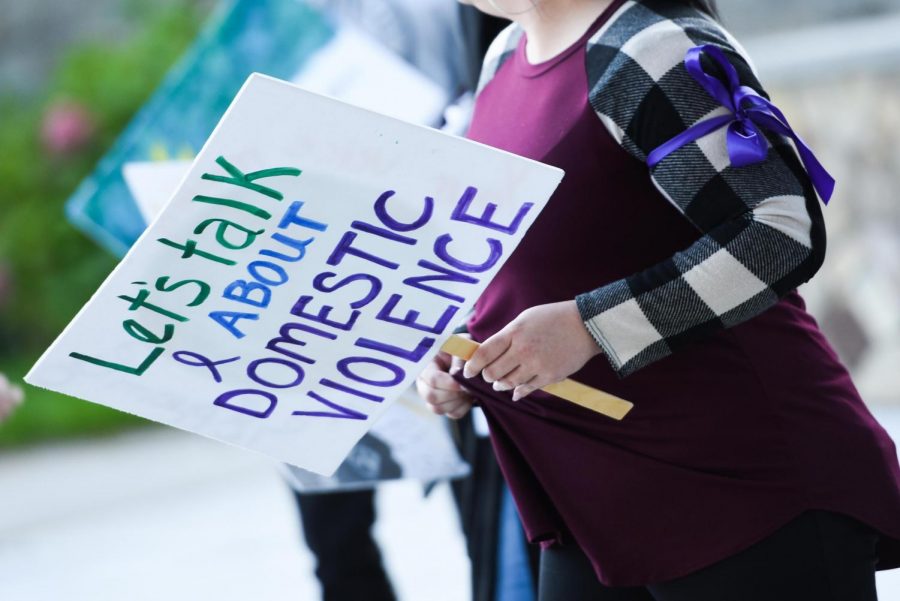In honor of Domestic Violence Awareness month, San Diego Community College District’s SPEAK program hosted a healthy relationships’ workshop to bring awareness to their campaign’s mission.
SPEAK stands for safety, prevention, education, advocacy, and knowledge. Its goal is to address sexual assault and domestic violence. The SPEAK program started around 2017 when the district applied for a federal grant to bring prevention education services and advocacy services to the campus.
The workshop, led by Nicole Teran, the project manager for SPEAK, focused on the aspects of a healthy relationship and provided possible signs of unhealthy relationships.
“We wanted to do a healthy relationships training because unhealthy relationships and abusive relationships are learned behavior,” Teran said, adding “part of our program is the philosophy that we can disrupt these behaviors and learn to be better partners and friends.”
Teran emphasized that these behaviors don’t just apply to romantic relationships, but to platonic relationships as well.
The workshop was participant dependent, providing students with different scenarios and having them identify abusive and unhealthy behaviors.
Starting the workshop, Teran had students list some things they believed were signs of a healthy relationship. She then went on to mention CHARM, which according to Teran, is a tool utilized to navigate healthy relationships.
“Every letter in CHARM represents a component to a healthy relationship,” Teran said. CHARM stands for confidence, have fun, acknowledge and apologize, respect, and make space and take space.
Teran went through and explained each letter, emphasizing the importance of independence, awareness, and communication in a relationship. “A lot of the unhealthy behaviors can come up in relationships when we aren’t communicating what our needs are, when we aren’t communicating how certain actions made us feel, or when we’re not communicating when our feelings are hurt,” Teran voiced.
In regard to awareness, Teran touched on the importance of recognizing unhealthy moments in a relationship and making sure those moments don’t become patterns. “The key is to not do it again because when you do it again it becomes a pattern, and that’s when things can go from unhealthy to abusive,” Teran said.
According to Teran, independence also plays a big factor in a healthy relationship. It is important to respect your partner’s identity and not try and change them. “We really need to respect people’s identities, where they’re coming from, and what they offer to the relationship as their own person rather than trying to change them into who you want them to be,” Teran said.
When emphasizing the importance of independence, Teran mentioned the necessity of preventing codependency in a relationship. Making space and taking time away from your partner to focus on yourself or spend time with other loved ones is very important in a healthy relationship, Teran explained. She mentioned that although codependency isn’t necessarily a negative, it is crucial that each person in the relationship have support systems outside of that relationship.
To speak with someone about unhealthy relationships, you can call 619-541-5970. For more information about domestic violence or for survivors of domestic violence, services can be found here.


